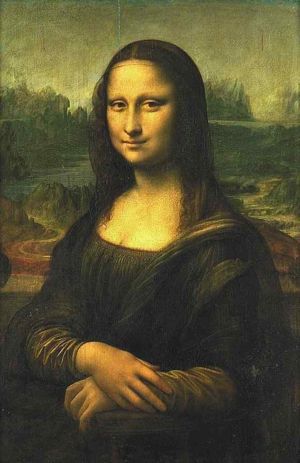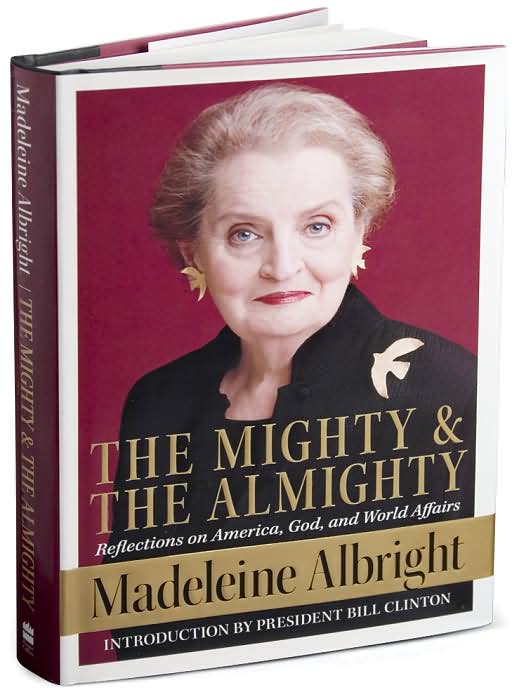 The Smart Set from Drexel University is an online publication covering culture and ideas, arts and sciences, global and national affairs. A recent article by Morgan Meis entitled “A Dilettante's Guide to Art” reviews the book “1001 Paintings You Should See Before You Die” by Stephen Farthing and poses the question "What is Painting?" The answer: "Who cares?"
The Smart Set from Drexel University is an online publication covering culture and ideas, arts and sciences, global and national affairs. A recent article by Morgan Meis entitled “A Dilettante's Guide to Art” reviews the book “1001 Paintings You Should See Before You Die” by Stephen Farthing and poses the question "What is Painting?" The answer: "Who cares?"Meis writes: Sometime in the middle of the 19th century painting started to get a little screwed up. It began to worry. Painters stopped simply doing what they were doing and started spending more and more time trying to figure out what they were doing and why. They got into the "What Is?" question. "What is Painting?", "What is Art?" "What Is…?"
It’s hard to blame them for it. The "What Is?" question was in the air. Chalk it up to the vast and traumatic transformations that ushered in modern times. Everybody was trying to figure out what was different and what was still the same. In painting, the biggest change was in the abandonment of representation as the central task. Nobody was interested in problems of perspective anymore, in figuring out how best to make the world of three dimensions look vaguely like itself on the canvas of two dimensions. And yet, for some reason, people still felt the desire to paint. Who knows why? Maybe it was just the need to hold on to a little tradition even as so much else was being swept away. Maybe it was the hope that an old practice could remake itself in a new world. Whatever the explanation, painting managed to remake itself and painters rushed into the 20th century with purpose. They had discovered a new subject matter, painting itself, and they were hot to show off its possibilities. Painting took on a double task, not just to do what it was doing, but also to make a claim about what it should be doing. Painters started talking about painting within their own paintings.
Malevich’s famous White on White comes to mind. It was, basically, one white square painted on top of another white square. It is a lovely painting in its own right, but it is also a manifesto in pigment. When Malevich painted those white squares he was also asking what painting could be, what it was about, what it should and shouldn’t be. Malevich was obsessed with the idea that art had to be freed from its relationship to the object. He thought that art should go after something more pure, perhaps touching on the realm of purity itself, wherever that is. His paintings thus asked the “What Is?” question and proposed to answer it simultaneously. His answer was that painting ought to be about truth and that truth is a simple and geometrical thing.
The amazing thing about 1001 Paintings is thus the breeziness of it all. It is a dilettante’s book …… the dilettantes are always right, because paintings are for looking at, and because every claim about what painting “should be” gets shriveled and old and academic even before the canvas does. The dilettante doesn’t care much about what painting “should be,” only about what it is and has been. And the thing that keeps this standpoint from being utterly trivial is the hint of melancholy in it. The dilettante is interested in all things equally because in the long eye of time all things are equally transient. Looking can become delightful again from that perspective, but it is tinged with the mark of death. The dilettante acknowledges this mark, and then goes about the business of living.
The answer that the book thus gives to the question “What is Painting?” is simple and clear. The answer is “Who cares?”
What painting(s) do you care about? Give the name and I will supply the link.
Posted August 29, 2007
 Mark Lilla, professor of the humanities at Columbia University, wrote an essay in the NY times entitled
Mark Lilla, professor of the humanities at Columbia University, wrote an essay in the NY times entitled  a recent
a recent  In the August 14, 2007 Science section of the NY Times Jane E. Brody writes about “Thriving After Life’s Bum Rap”.
In the August 14, 2007 Science section of the NY Times Jane E. Brody writes about “Thriving After Life’s Bum Rap”. Edmonds and Eidinow described a lifetime squabble between Rousseau and Hume in
Edmonds and Eidinow described a lifetime squabble between Rousseau and Hume in 
